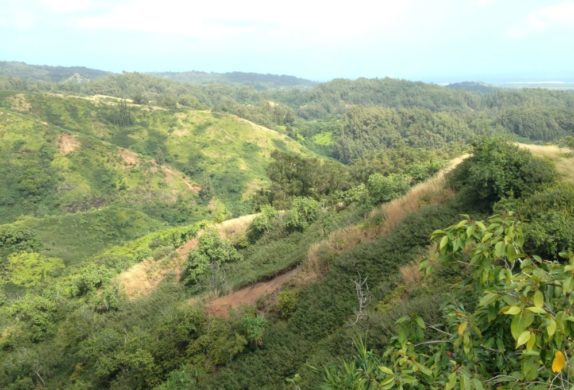
Photo by Benjamin Minch.
By Benjamin Minch, Staff Writer
Have you ever wondered why humans walk in the forest even though the forest has nothing to give us? Or why humans keep pets even though they offer no significant value to meeting our needs? Dogs are what you would call parasites. They take up your resources, money and time and barely give you anything in return. Why does this happen? Why would anyone do something that doesn’t meet any of their needs?
Edward O. Wilson, an American biologist in the 1900s, thought of the same questions. His conclusion was that all humans have an innate tendency to favor life and lifelike processes. He claimed this definition and coined the Biophilia hypothesis. The word ‘biophilia’ literally means “the love of life”, so it is a fitting term coined for the hypothesis.
In his book Biophilia, Wilson talks about the possible origins of biophilia, which are very interesting to consider. Origins can often tell us why behaviours exist, or what caused them to be useful in the past. The book describes two possible theories as to why people value life so much and love to hang around it. The first of which dates back to ancient sub-Saharan Africa.
All of humanity began in the region of the world known as Sub-Saharan Africa, which is the very hot desert spot in the middle of the continent. In this region where man had first grown up in, there was barely any life at all. The idea of biophilia comes in because as man evolved and became more civilized, so did the land they inhabited. They brought life to the land and in response, the land brought life to them by means of rainfall and food. This idea that man coevolved with the natural world is one of the theories behind biophilia. People often find attachment to the things they grow up with.
The second theory of the origin of biophilia is natural selection. Many early humans built cities and towns near rivers and lakes because it brings them food and water, meeting their needs. Biophilia may have generated from this idea that life meets needs that non-life doesn’t provide. This makes biophilia more of an acquired taste than a naturally occurring process. Eventually after years of people thriving and surviving where there is life nearby, biophilia became ingrained in human society.
While both of these theories are fair with a lot of scientific evidence backing them up, I tend to lean towards first theory because I do not believe that traits can be acquired that easily for humans. I especially don’t think that they can turn into behaviours that affect every aspect of our lives. It seems more reasonable that our link to earth and its history has caused us to have an innate tendency to favor it over something we have no shared history with. I see the evidence of siblings and animals growing up together and think it is too strong to support the latter of the theories.
This hypothesis is part of the reason that we love animals and trees so much, even though they don’t do anything to meet our physical needs. There is more than just physical needs that need to be met. Biophilia meets a need that every human is born with: the need to be around life.
I don’t believe that the very first humans valued rocks the same as animals and life. Rocks gave them nothing except occasional weapons. The tendency to favor life was born with humans and has been here ever since.
One problem I and other scientists have with the biophilia hypothesis is that it really isn’t much of a hypothesis at all. Hypotheses must be able to be objectively tested and experimented on. This hypothesis however, doesn’t have a clear way to objectively test it because it deals with a natural bias. The only way that this hypothesis has been tested is subjectively, which isn’t a form of hard science. People can only tell that biophilia is true by seeing the effects of it and observing it with their eyes—not actually testing it.
Even so, I still believe that biophilia isn’t something to take lightly. I see too much evidence in our world for favoring life over non-life to disregard the hypothesis. This hypothesis is one that is rarely taught in schools. This could be detrimental to our future. I think it is important for people to know that they have this tendency to favor life because it may stop them from destroying it. People could be more caring for the natural world and it could cause us to take more consideration in protecting nature.
The recent research around biophilia hasn’t been geared towards where it came from; instead, it has been geared towards biophilic cities.
Seeing that biophilia is a real thing, scientists have taken initiative to apply it to cities. This includes making sure that every person in the population is a certain distance away from a green space, land is covered by green features such as trees and the number of parks and flowers available to the public is sufficient. Scientists have found that cities that meet this criteria tend to have happier populations and higher life enjoyment. Cities such as Phoenix, Ariz. are currently working to better their biophilia index by preserving acres of grass and forest.
The benefits of biophilic cities are enumerable. It has been proven to raise brain activity by 56.1% according to studies done in Sacramento, Calif. It also makes people more efficient at their work. Nature has a way of improving our everyday lives and this is seen through biophilia. Biophilia could be a “life-changing” hypothesis.





